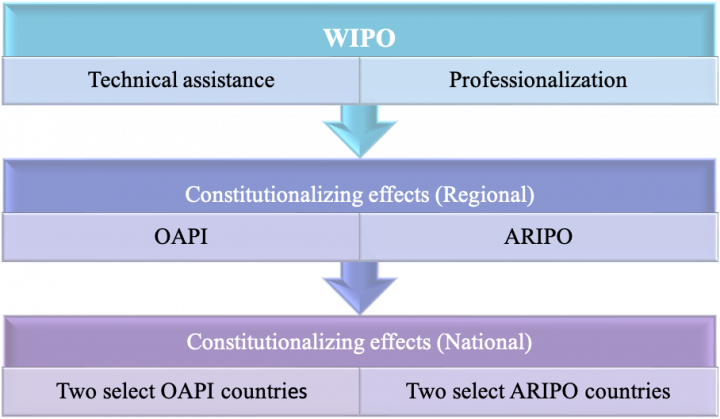ABOUT
This project investigates the central role of technical assistance in the constitutionalization of intellectual property norms in Africa. Constitutionalization refers to a process in which norms get “stapled into” the fabric of laws and policies, and technical assistance is one of the less-scrutinized mechanisms of establishing global one-size-fits-all policies for intellectual property. It will seek to lay out a new theoretical framework for investigating and understanding how technical assistance (broadly defined to include professionalization) has facilitated the constitutionalizing of IP norms in Africa from 1950—2020. Due to its limited lifespan (from 2022 — 2027), the project will focus on only technical assistance from the World Intellectual Property Organization (WIPO).

The overall research objective of the project is to answer five related questions:
- The first and main research question is, in the global constitutionalizing of IP norms, what political processes have established the normativity of IP law as a legitimate and authoritative institution in developing countries, and more specifically, African countries?
- What have been the forms of intervention on IP technical assistance from WIPO and the effects of these interventions on domestic legislation in Africa?
- How has the interaction of legal and other forms of expertise in the provision of IP technical assistance been and how has this informed the development and orientation of local experts in Africa?
- The fourth question is whether and how technical assistance could account for the unusual enactment of stringent IP norms in many African countries.
- The last research question will explore whether IP-related technical assistance has generated the desired effect of economic development for African countries through interviews and reviews of reports of governments and non-governmental agencies.